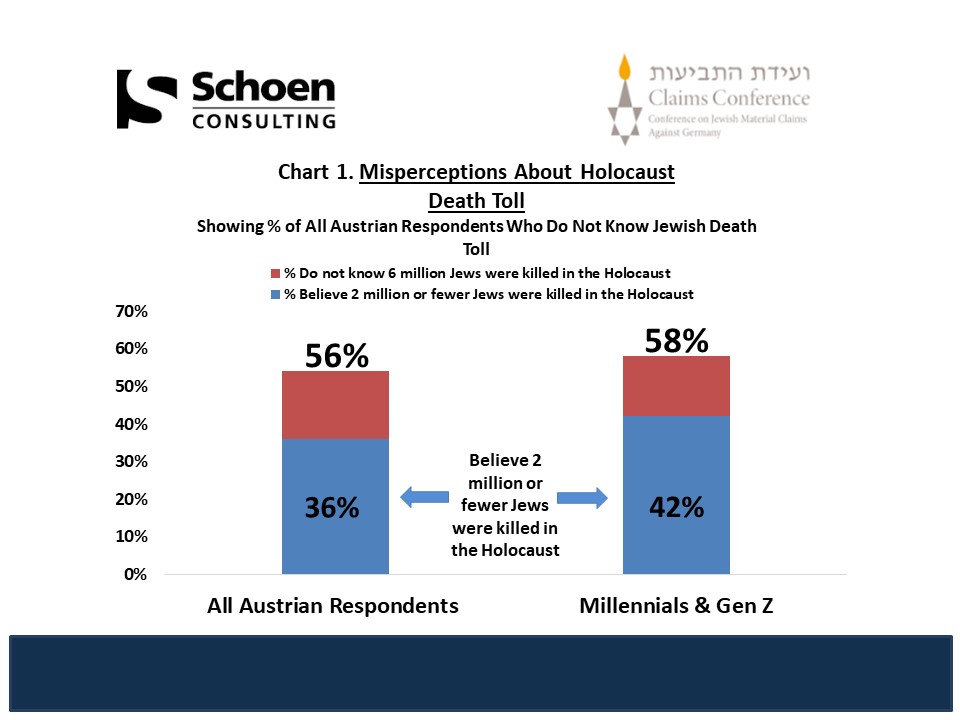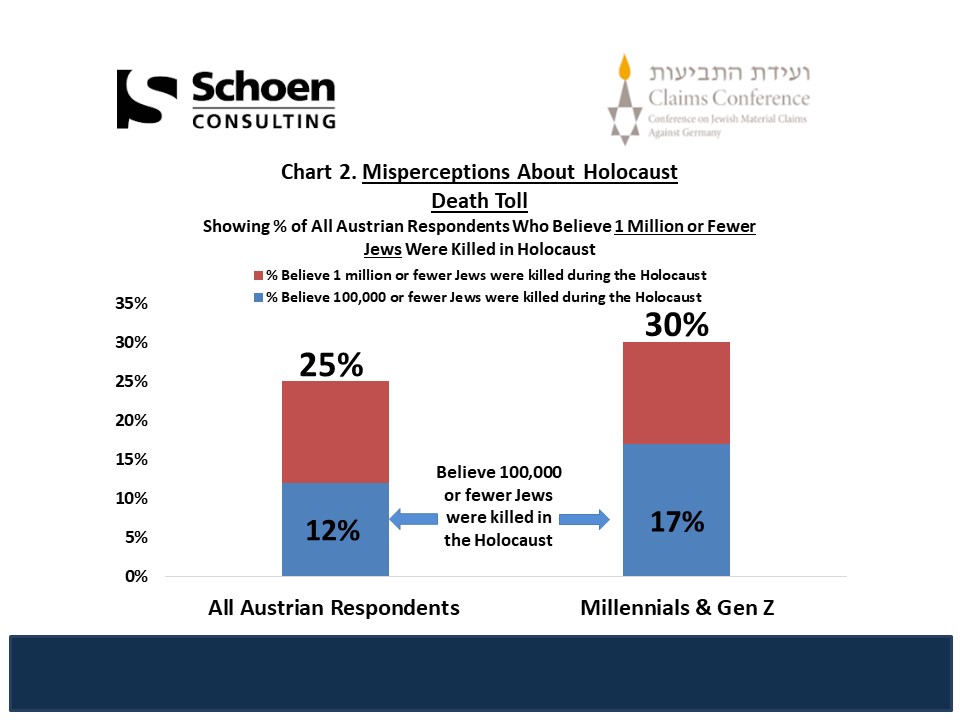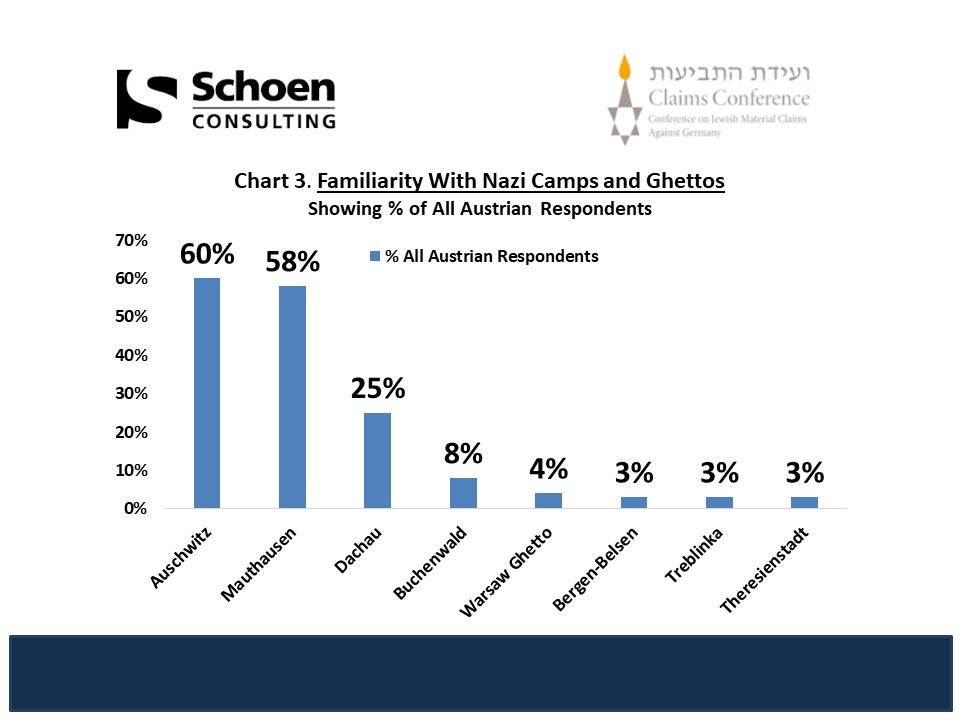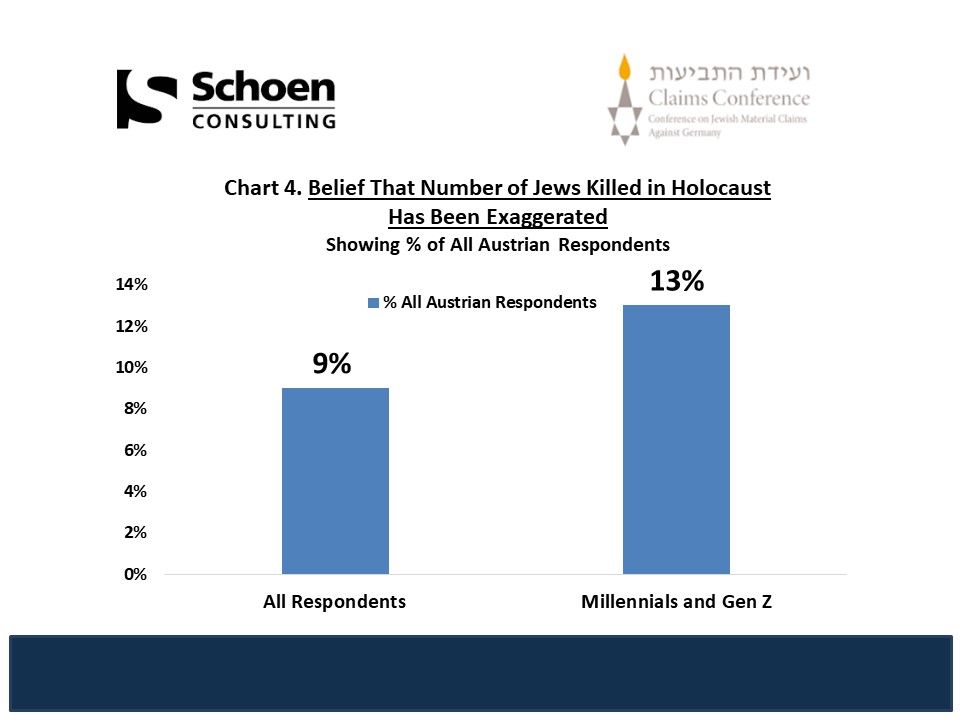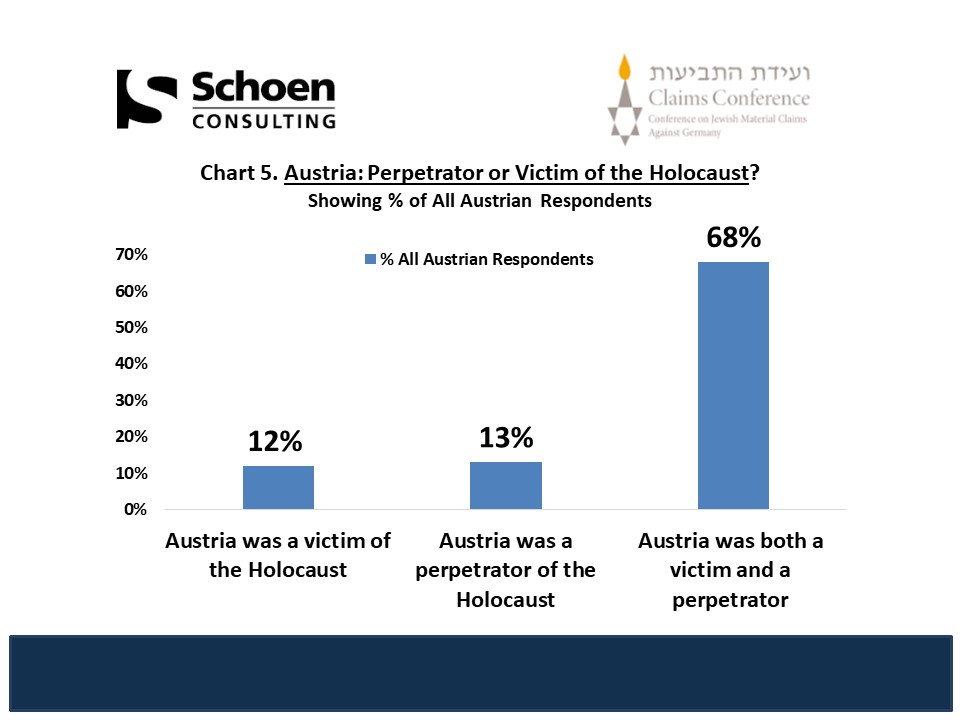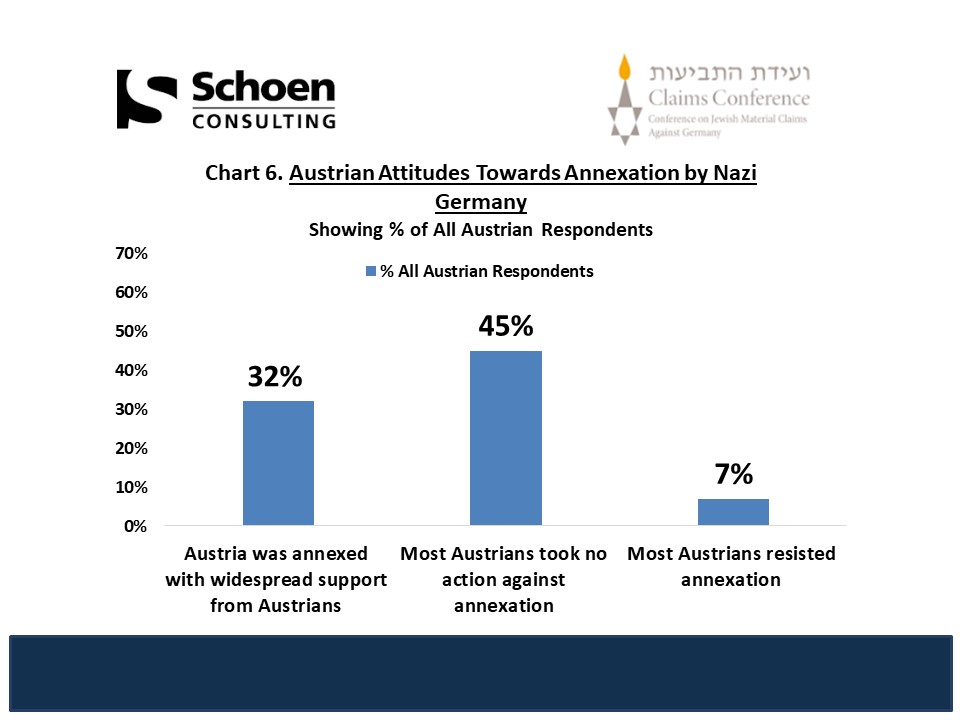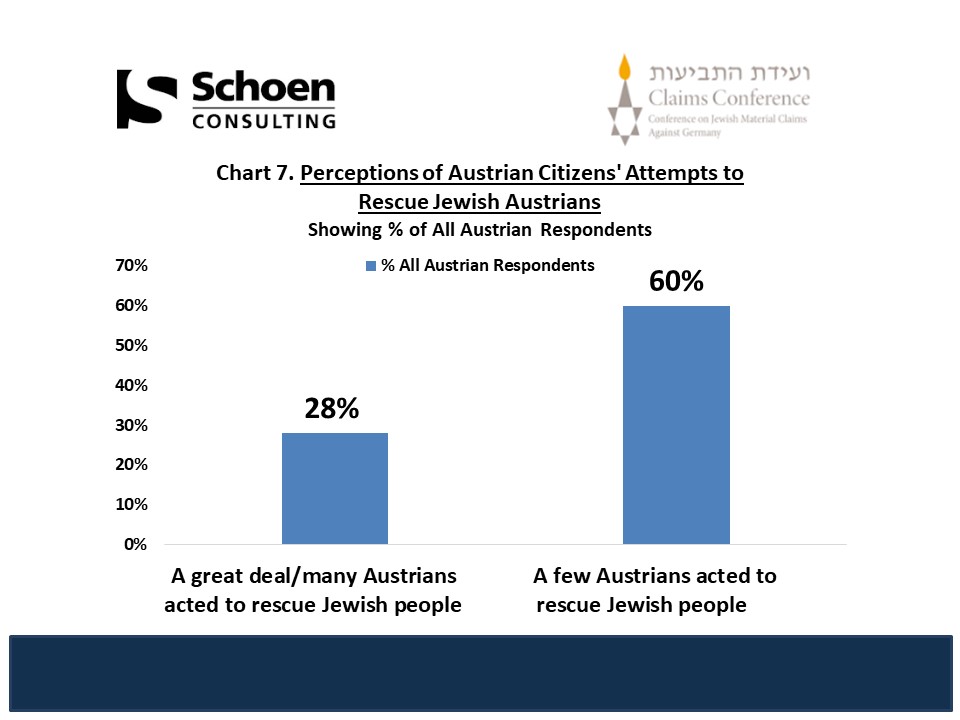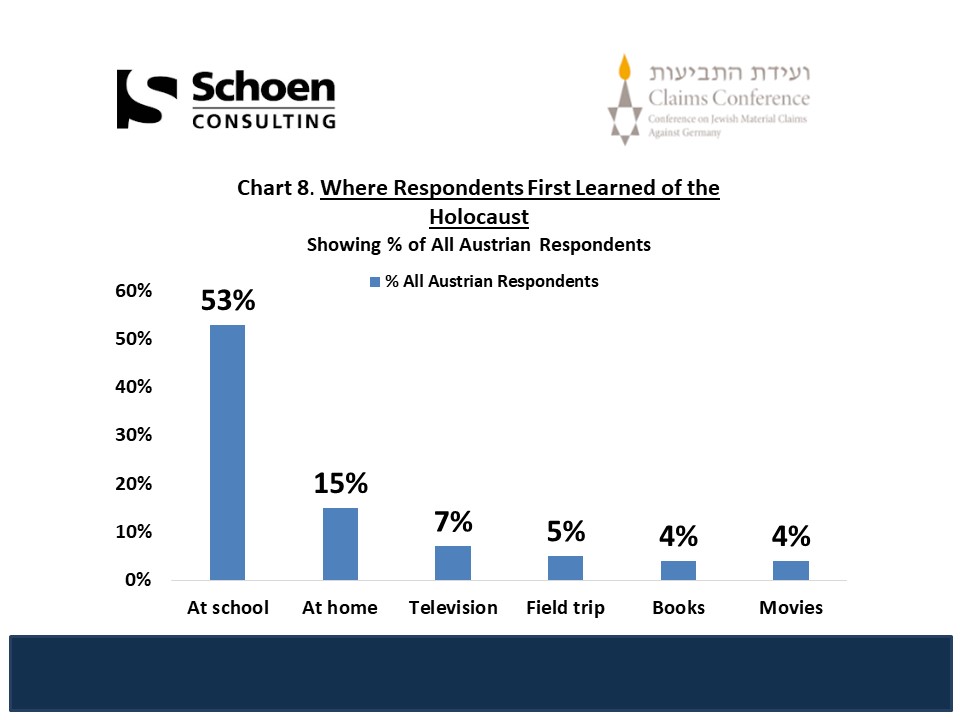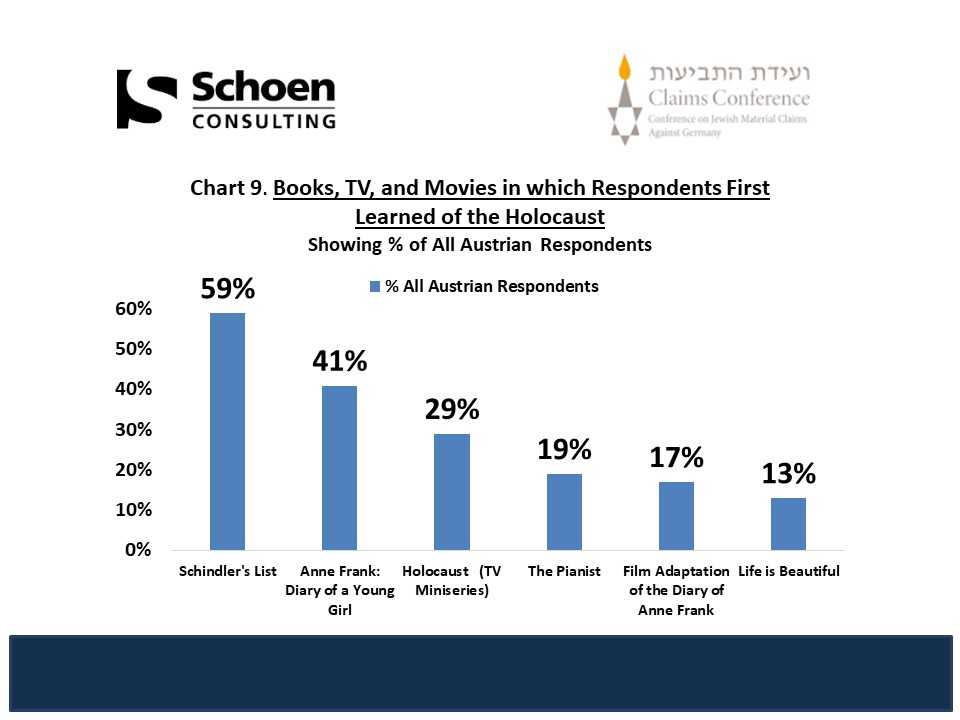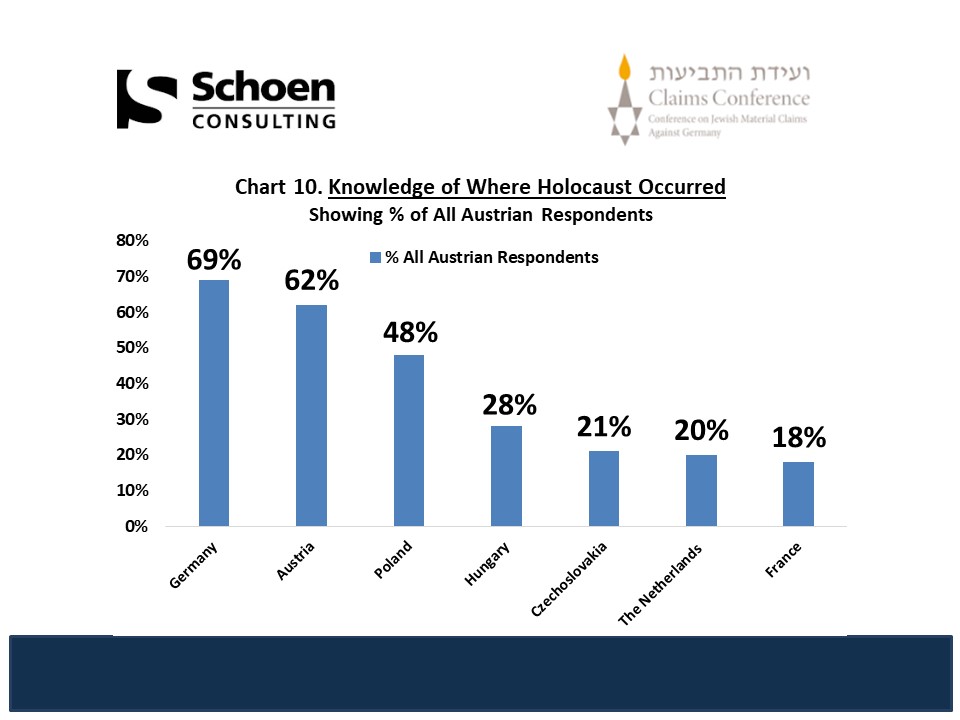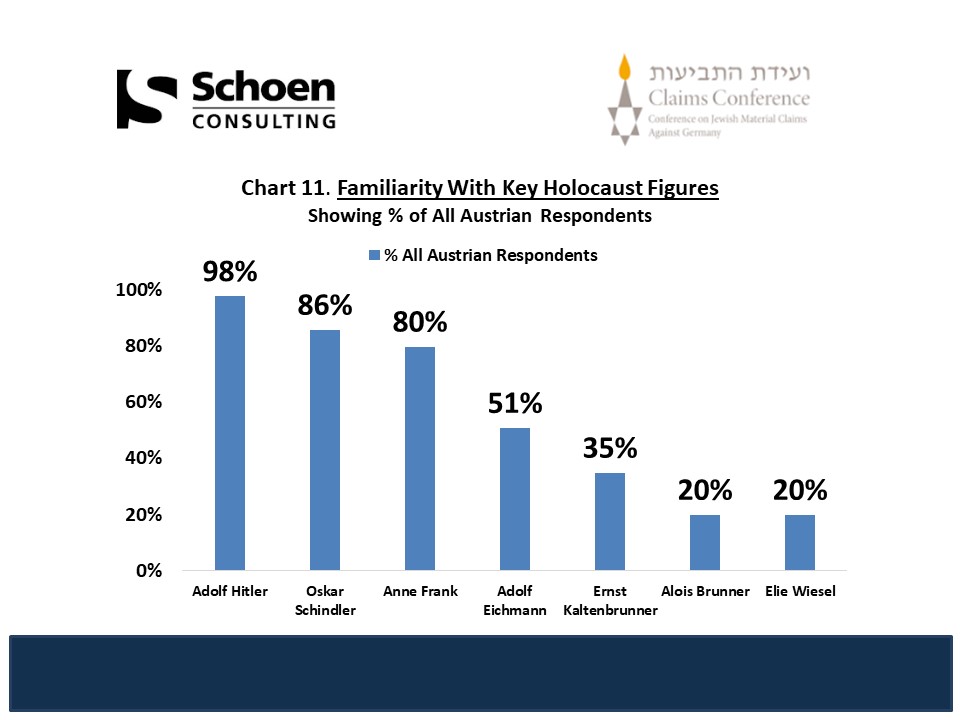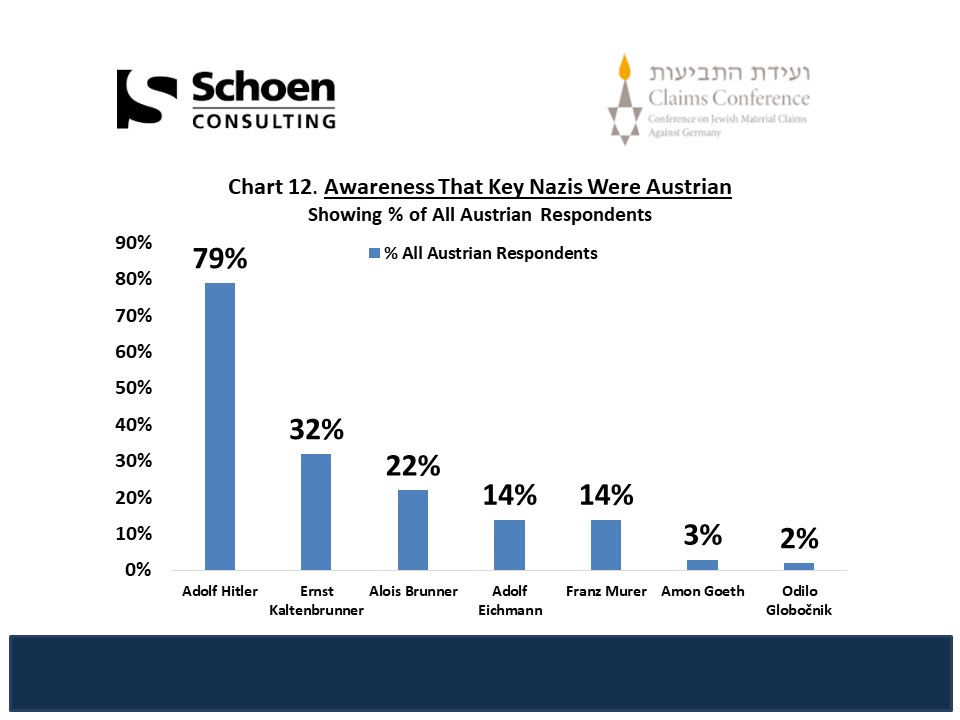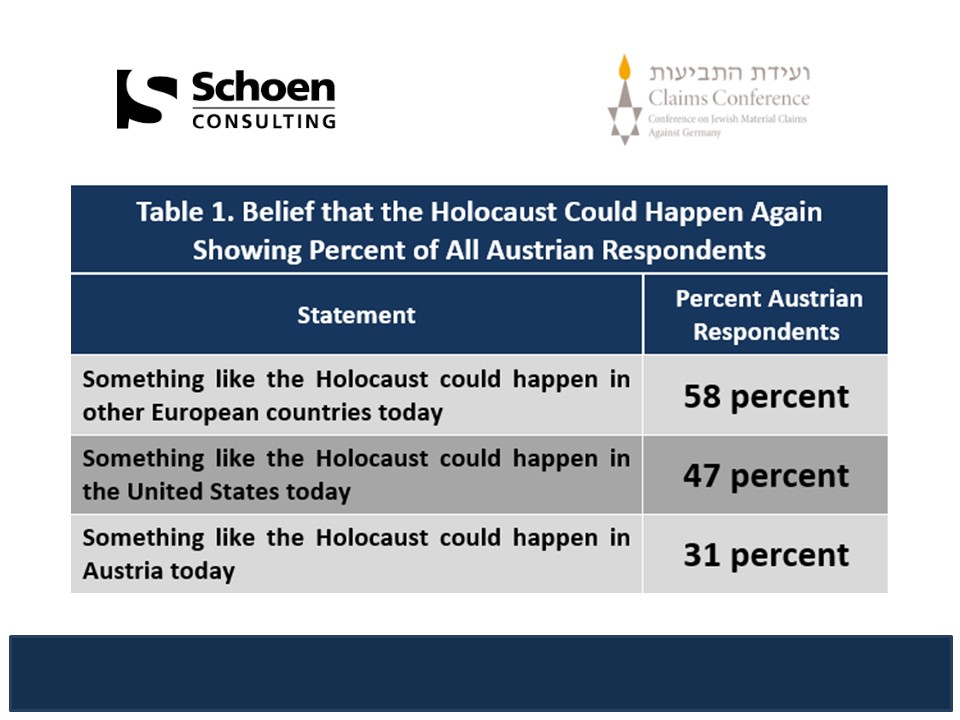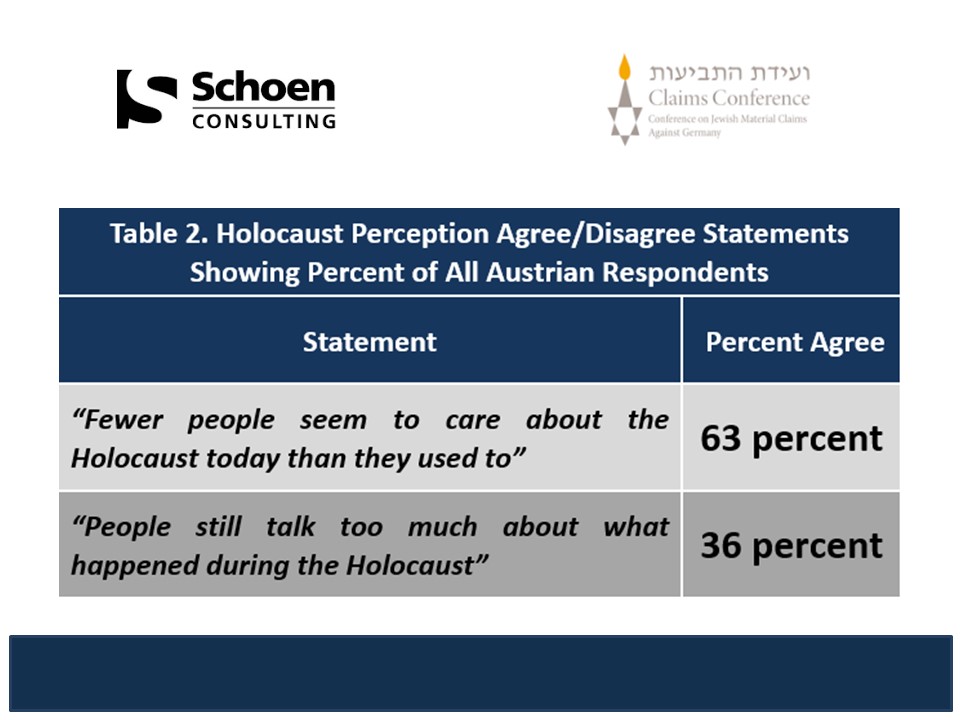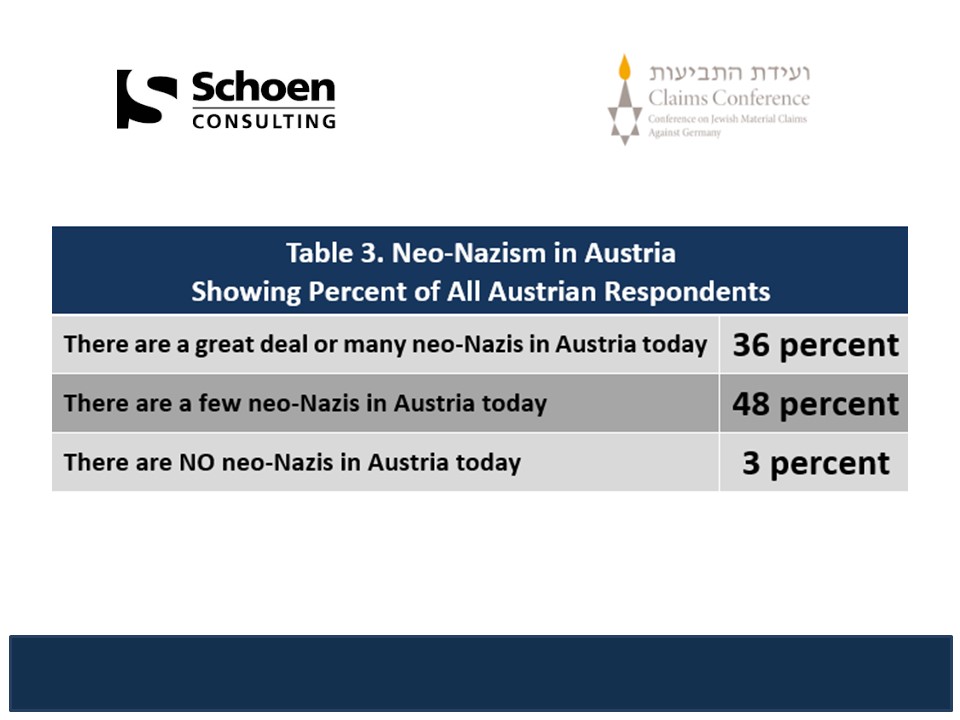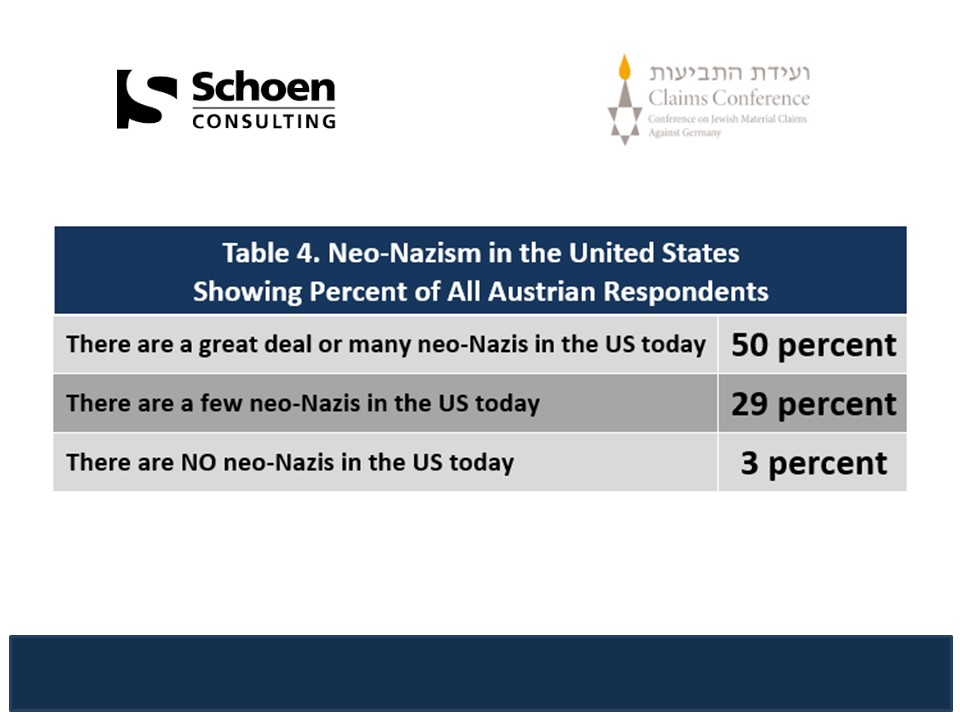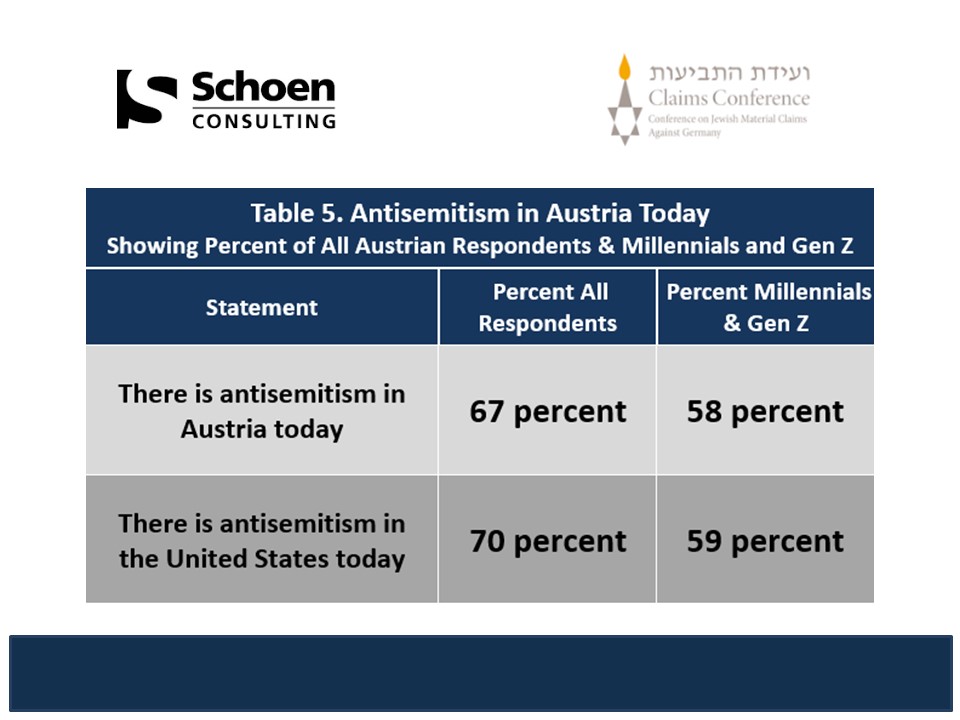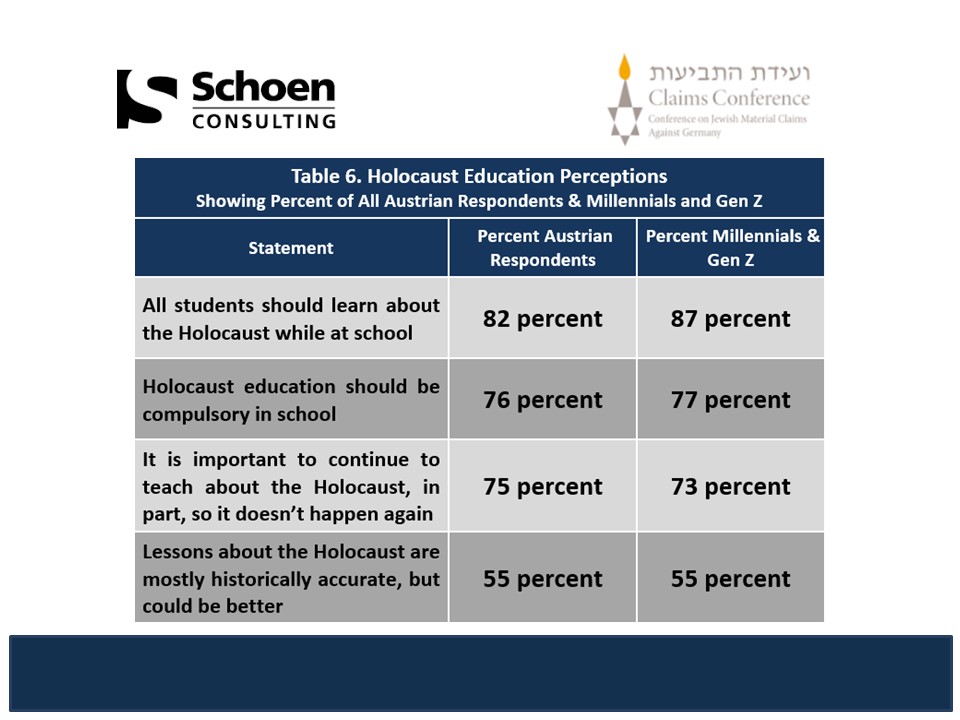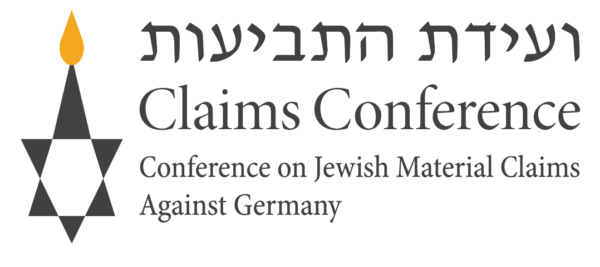New Survey by the Claims Conference Finds Critical Gaps in Holocaust Knowledge in Austria
More than One-Third Feel National Socialism Could Come to Power Again, and the Majority Polled Did Not Know Six Million Jews Killed During the Holocaust
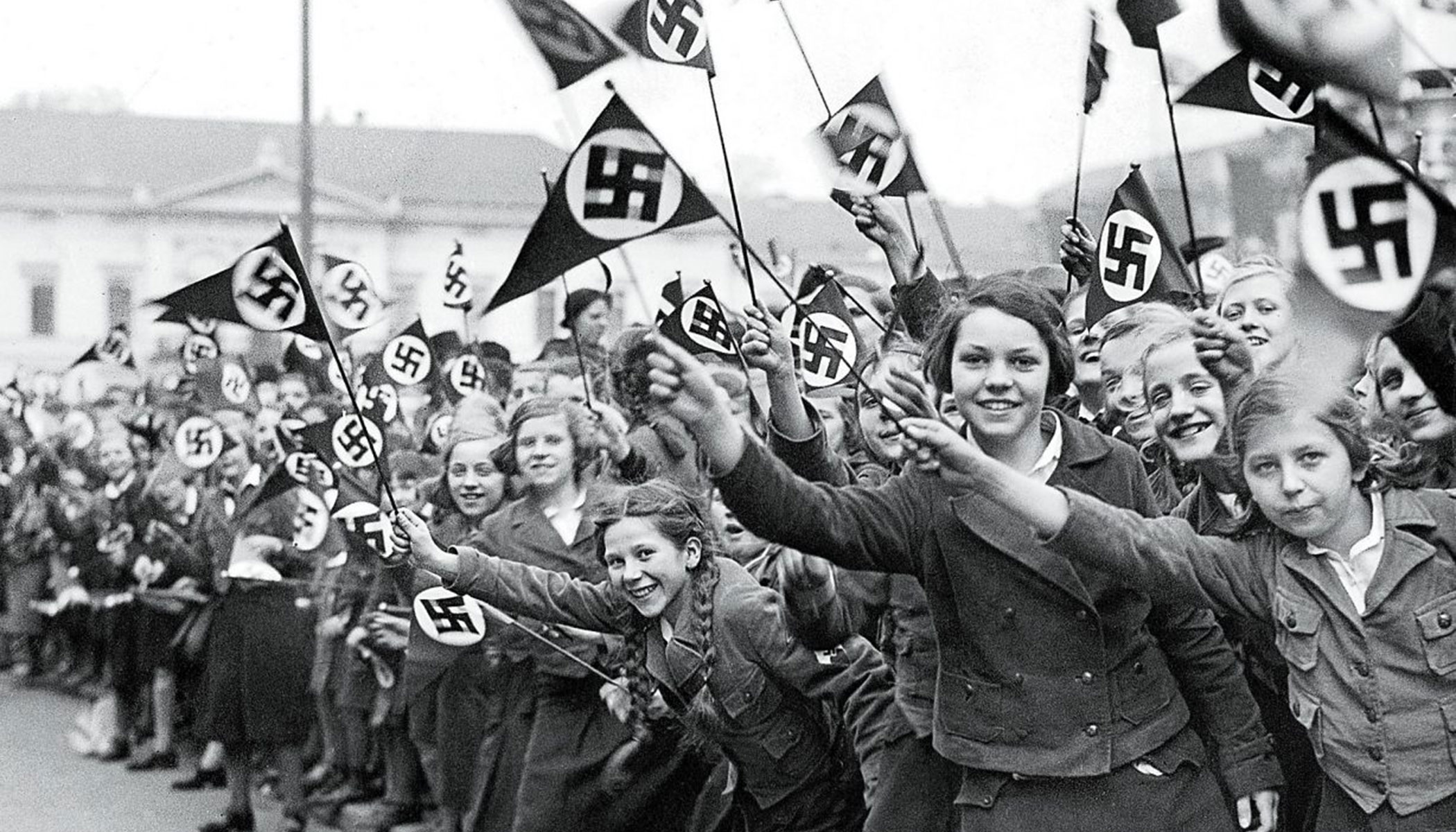
The Claims Conference has conducted nine surveys across eleven countries examining Holocaust knowledge and awareness worldwide
Julius Berman, President of the Conference on Jewish Material Claims Against Germany (Claims Conference), announced the release of a comprehensive Holocaust Knowledge and Awareness Survey of adults in Austria.
More than half (56 percent) of those surveyed did not know that six million Jews were killed during the Holocaust. That number rose to 58 percent among Millennials and Gen Z.
Similar to the April 2018 survey the Claims Conference conducted in the United States, the Austrian study identified gaps in awareness of historical facts and knowledge of the Holocaust. The survey also found an alarming number of Austrians (58 percent) indicate that something like the Holocaust could happen again in other European countries.
Austrian perceptions of the neo-Nazi movement in the United States are higher than perceptions in their own country, with 36 percent of respondents saying there are a “great deal” or “many” neo-Nazis in Austria compared to 50 percent who say there are a “great deal” or “many” neo-Nazis in the United States.
“This is the third survey the Claims Conference has conducted globally in the past year to measure Holocaust knowledge and awareness,” Julius Berman noted. “And here again, we are seeing disturbing trends pointing to the lack of Holocaust knowledge. Without education, we risk the history of the Holocaust being distorted and otherwise denied and those who were murdered being forgotten. Effective education is paramount towards ensuring that what happened in the past does not repeat itself.”
Matthew Bronfman, Task Force Chair, Holocaust Knowledge and Awareness Study speaks about the results of the study
Additional major findings from the survey include:
- One of the most startling statistics: One-quarter of Austrian respondents (25 percent) believe that one million or fewer Jews were murdered during the Holocaust. The number is even higher among Millennials & Gen Z, almost one-third of whom (30 percent) believe that one million or fewer Jews were murdered.
- More than one-third (36 percent) of Austrians overall – and 42 percent of Millennials and Gen Z in Austria – believe two million Jews or fewer were killed during the Holocaust.
- A 38 percent plurality of respondents believe National Socialism/Nazism could come to power again, while 35 percent totally disagree with the statement, and 27 percent are neutral or unsure. Belief in the possible resurgence of Nazism is higher among Millennials and Generation Z with 43 percent believing National Socialism/Nazism could come to power again.
- Austrians’ complicated relationship with their country’s Holocaust legacy is exemplified by the majority of Austrians (68 percent) who say that Austria was BOTH a victim and a perpetrator of the Holocaust, while only 13 percent said they were only perpetrators.
- There is a general consensus that Austrians did not actively resist the Nazis, with 45 percent of respondents stating that Austrians took no action when Austria was annexed by Nazi Germany, while 32 percent said the annexation was met with wide support from Austrians. 16 percent of respondents were unsure, and 7 percent believed that most Austrians resisted the annexation.
- 28 percent of those surveyed believe a “great deal” or “many” Austrians acted to rescue Jewish people, while 11 percent were unsure how many, if any at all, Austrians acted to rescue Jewish people. For historical context, 109 Austrians are recognized as having acted to help Jews during the Holocaust – according to Yad Vashem’s database of the Righteous Among the Nations.
- When asked to name a death camp, concentration camp or ghetto they had heard of, 42 percent of Austrians could not name Austria’s Mauthausen, a death camp which imposed some of the harshest conditions of imprisonment and is located approximately 100 miles from Vienna, Austria’s capital.
- Even for survey responses indicating substantial awareness of famous Holocaust figures, it is clear that there was a profound lack of geographical or historical knowledge. For example, 80 percent of respondents were familiar with Anne Frank, however, only 20 percent were able to identify the Netherlands, the country where she was hidden in a secret annex and ultimately captured by the Gestapo, as a location where the Holocaust took place.
- While 51 percent were familiar with Austrian Adolf Eichmann, the administrator and organizer of Hitler’s “Final Solution,” only 14 percent knew that Eichmann was Austrian.
On an encouraging note, 75 percent of respondents believed it is important to continue teaching the Holocaust so that it doesn’t happen again, 82 percent said all students should learn about the Holocaust in school, and 76 percent believed it should be compulsory in school. This theme echoes similar results in the Claims Conference Holocaust Knowledge and Awareness studies in the U.S. and in Canada.
Home movie from Vienna, Austria in 1938. The film shows the destruction of Jewish-owned businesses and rampant Antisemitism in Austria. For decades, Austria regarded itself as the first victim of Nazism, rather than acknowledging that a majority of Austrians welcomed and collaborated with the Nazis. Source: Prelinger Archives/public domain
A survey task force led by Claims Conference Board member Matthew Bronfman consisted of Holocaust survivors, as well as representatives from museums, educational institutions, and leading nonprofits in the field of Holocaust education including the following: Yad Vashem, the United States Holocaust Memorial Museum, the Claims Conference and George Washington University.
Greg Schneider, Claims Conference Executive Vice President remarked, “While an overwhelming majority in the Austrian, U.S. and Canadian studies feel the Holocaust should be taught in school, it’s not enough to believe it – we must do more to make it happen.”
Matthew Bronfman, task force Chair, said, “It’s clear we have a problem when, astonishingly, 42 percent of Millennials and Gen Z believe two million Jews or fewer were killed during the Holocaust. We are failing to teach our young people and the consequences will be devastating.”
Oskar Deutsch, President of the Jewish Communities in Austria and Vienna stated, “The lack of knowledge among many Austrians revealed through this study sets a mission for not only teachers and politicians but all society. A sincere handling of antisemitic incidents today and misrepresentations of Shoah is crucial.”
Additional significant findings include:
- 13 percent of Millennials and Generation Z believed the number of Jews who died has been greatly exaggerated while 10 percent were unsure.
- 27 percent of respondents believed Jewish people could face another mass genocide, 35 percent were in complete disagreement, and 38 percent were neutral or not sure.
- Nearly two-thirds of respondents (63 percent) say that fewer people seem to care about the Holocaust than they used to.
Survey Methodology and Sample
The Holocaust Knowledge and Awareness Study was commissioned by the Claims Conference. Data was collected in German and analyzed by Schoen Consulting with a representative sample of 1,000 Austrian adults via landline, cell phone, and online interviews. Respondents were selected at random and constituted a demographically representative sample of the adult population in Austria.
Topline Results:
Topline Results: Austria
Topline Results: Austrian Millenials
Topline Results: US/Canada/Austria side-by-side
Topline Results: (German)

